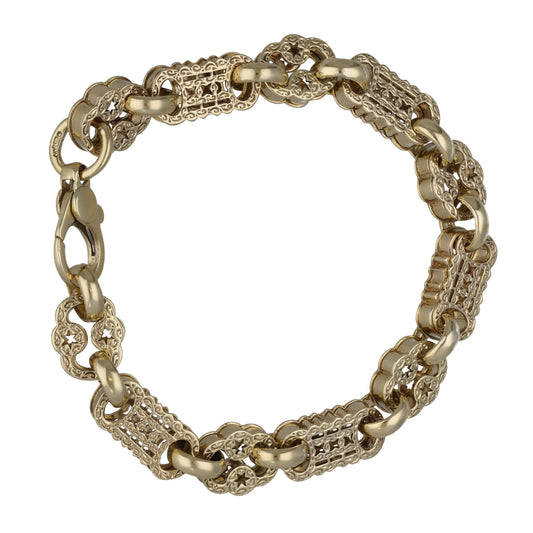In recent years, a brand new type of currency – cryptocurrency – has been developed. It only exists in a digital format, and unlike the currency we are all so used to, is not held by a bank. Some say it is the future of money: it’s universal, and appears to be immune to many of the issues facing traditional world currencies today. But what actually is it, and will it catch on?
What is Bitcoin?
Some may argue that cryptocurrency has already caught on, in the form of Bitcoin. Bitcoin first appeared in 2009, when it was invented by a programmer named Satoshi Nakamoto (this name is believed to be an alias, so the true inventor of Bitcoin is actually unknown).
Bitcoin was the first cryptocurrency. There are many other cryptocurrencies out there, such as Ethereum, Litecoin, Ripple and IOTA, but as Bitcoin is the original and most used, many people use the word Bitcoin to refer to cryptocurrency in general. If you’re unfamiliar with cryptocurrencies, then you may not have heard of these other varieties.
Who controls cryptocurrencies?
We are all used to giving our money to a trusted middle-man for safe keeping, such a bank or building society. We know that they will keep an accurate record of what is earned and spent, and will ensure we are protected from theft and fraud. We also know that the money we have in the bank holds value which is dependent on the stock market. Our money is regulated, protected and conveniently held for us so we feel that it is safe.
Cryptocurrencies, on the other hand, are not stored in a bank nor are they controlled or created by any one person or company. This may seem very open to exploitation and not very safe, but the security of cryptocurrencies is based on complex mathematics and digital encryption, making it theoretically impossible to corrupt.
How are transactions made?
To use any cryptocurrency, you must download the computer program associated with the type of cryptocurrency you want to use. For the purposes of this article, let’s assume we are using Bitcoin. From the Bitcoin platform, you can send and receive Bitcoins for goods or services. To keep it secure, both a public and private key are used for each separate transaction, which are like numerical passwords.
These transactions are recorded on a public ledger, where every single transaction can be seen by everyone using Bitcoin. No actual names or personal details are used on this ledger; it will only show encrypted usernames which are difficult to track.
The public ledger is broken down into smaller ‘blocks’ of transactions, which have each been processed and confirmed by a ‘miner’, who will be another Bitcoin user. This is done by solving a complex computational puzzle and takes around 10 minutes to decipher. Once this is complete, the block of transactions has been mathematically confirmed to be correct and it is added to the ledger, or ‘block chain’. The person who solved the puzzle – the miner – then receives a reward in the form of new Bitcoins. This is how Bitcoins are created.
Mining Bitcoins and other cryptocurrencies involves owning and running industrial grade hardware and uses a lot of electricity. Thankfully, it is not an obligatory part of being a Bitcoin user or trader and it mainly happens behind the scenes.
What makes cryptocurrency different?
As you can see, there are many ways in which cryptocurrency is different to the traditional money we are familiar with. When trying to wrap your head around how it all actually works, it can be easy to miss key features:
- It’s highly secure
The laws of large numbers and the complicated mathematics used means that it’s only possible to create false transactions by guessing unique private keys which are made up of a lot of numbers. The chances of doing this are as close to impossible as you can get.
- It’s largely anonymous
Your personal details have nothing to do with your cryptocurrency ‘wallet’ and the digital address your currency is sent to is randomly generated.
- It’s a universal currency
Cryptocurrency is designed to be universal and can be used by people all over the world, as long as they have access to the software. As it exists exclusively in digital form and all transactions are processed by a number of people located around the globe, there is no difference between buying something locally with Bitcoin, or making a purchase from a country half way around the world
- It’s set in stone
Once a Bitcoin miner has confirmed a block of transactions and it’s been added to the block chain (the public ledger), those payments are then permanently mathematically confirmed. Each block is uniquely connected to the one before and after it using information within the transactions themselves, and if anything within these blocks is changed, the whole ledger will fall apart. Due to this, all transactions are irreversible with absolutely no exceptions.
What can you buy with cryptocurrencies?
These days there are a wide number of businesses and individuals who will accept Bitcoin as payment for goods and services, whether that’s online or out there in the real world. There are also online marketplaces which only take cryptocurrency as payment, such as Bitify. You can buy almost anything with Bitcoin, although you are obviously a little more restricted about where you shop. Many people get around this by purchasing gift cards with their Bitcoins, which allows them to shop in places which do not yet take Bitcoin as payment.
Are cryptocurrencies becoming more popular?
Cryptocurrencies are gaining traction all over the world and are certainly creating a lot of hype in the media. Researchers at the University of Cambridge estimated that there were 2.9million – 5.8million unique cryptocurrency users in 2017, and there were already over 100,000 merchants accepting Bitcoin as payment as long as 3 years ago. As it’s such a new currency with an entirely different platform to what we are used to, there is no way of telling whether it will continue to be a success or what the value of Bitcoin will do. If you’re interested in getting started with Bitcoin or another type of cryptocurrency, make sure you fully understand the basics before jumping in with both feet.


















